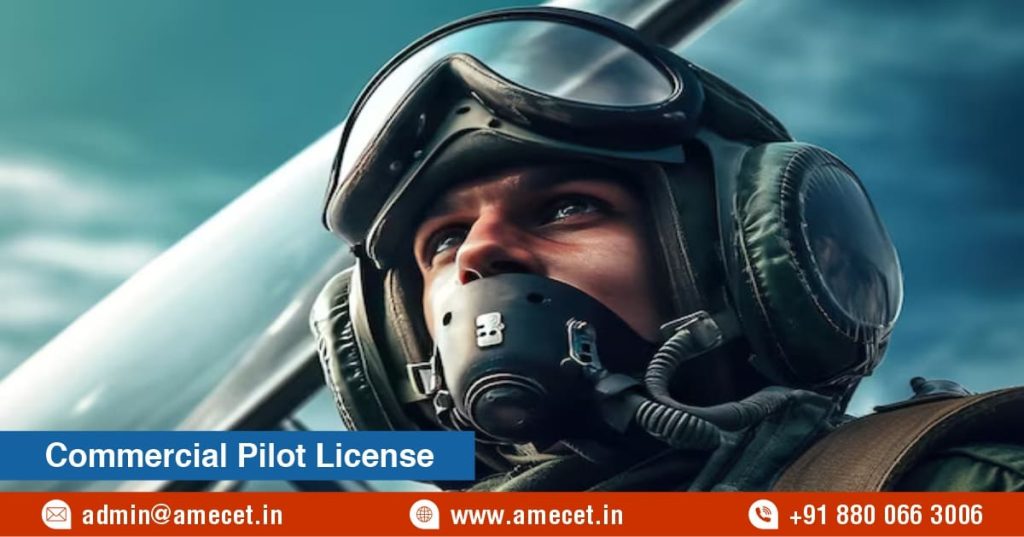How Much Does a Commercial Pilot License Cost?
Posted on : 18 September, 2024 12:51 pm
The cost of obtaining a Commercial Pilot License (CPL) can vary widely depending on the flight school, location, and training program. On average, it ranges from $40,000 to $100,000. This includes expenses for flight hours, ground school, instructor fees, study materials, medical exams, and licensing fees. Additional costs may arise for advanced certifications or ratings. Prospective pilots should also budget for living expenses during training. Financial planning, scholarships, and loans can help manage these costs, making it crucial to research and choose a program that fits both educational and financial needs.
Breakdown of CPL Costs
Obtaining a Commercial Pilot License (CPL) involves several cost components. These include flight training hours, ground school tuition, instructor fees, aircraft rental, and examination fees. Additional expenses may come from medical exams, study materials, and certification fees. Moreover, advanced ratings like instrument or multi-engine training can increase the total cost. It’s crucial for prospective pilots to budget for these expenses to complete the program successfully.
Breakdown of CPL Costs:
- Flight training hours typically form the bulk of CPL expenses.
- Ground school tuition covers classroom instruction and theory.
- Instructor fees vary based on experience and training hours.
- Aircraft rental rates depend on the type of plane used.
- Examination fees for written and practical tests are required.
- Medical exams ensure fitness to hold a CPL.
- Certification and licensing fees apply at different stages.
- Additional costs include study materials and pilot equipment.
Flight School Fees
Flight school fees are a major part of obtaining a Commercial Pilot License (CPL). These fees vary based on the school’s reputation, location, and training resources. University-affiliated flight programs may cost more but offer structured training. Private flight schools tend to have more flexible pricing but can differ in quality. Fees typically cover flight hours, ground school, and instructor costs, with additional costs for advanced certifications and equipment.
Flight School Fees:
- Fees vary depending on the school’s reputation and location.
- University-affiliated programs often charge higher tuition.
- Private flight schools may offer more affordable options.
- Flight school fees cover both theoretical and practical training.
- Additional charges for instrument or multi-engine ratings.
- Instructor fees are included but may vary by program.
- Some schools offer financing options for tuition.
- Fees for exams and flight tests are separate.
Aircraft Rental Costs
Aircraft rental costs are a significant part of CPL training, as flight hours are crucial for licensure. Rates vary depending on the type of aircraft, with single-engine planes generally being more affordable than multi-engine ones. Rental fees typically cover fuel and maintenance but can fluctuate based on location and demand. Students must plan for enough rental hours to meet flight experience requirements, which greatly impacts the overall cost of training.
Aircraft Rental Costs:
- Rates depend on the type of aircraft used for training.
- Single-engine aircraft are cheaper than multi-engine options.
- Rentals usually include fuel and basic maintenance.
- Prices vary by location and flight school.
- Rental hours needed affect total cost significantly.
- Advanced training may require more expensive aircraft.
- Multi-hour flight packages may offer discounts.
- High demand can increase rental costs during peak times.
Instructor Fees
Instructor fees are an essential cost in CPL training, as they cover personalized flight instruction and guidance. These fees are typically charged by the hour and vary depending on the instructor’s experience and the flight school’s pricing structure. Instructors are responsible for overseeing flight training, providing feedback, and preparing students for exams. Advanced certifications may require more experienced instructors, increasing the overall cost of obtaining a Commercial Pilot License.
Instructor Fees:
- Fees are charged hourly, depending on instructor experience.
- Advanced training may require higher-priced instructors.
- Instructor quality impacts the effectiveness of flight training.
- Fees can vary by flight school.
- More flight hours with instructors increase total costs.
- Experienced instructors may offer better exam preparation.
- Prices for instructors are higher for specialized training.
- Discounts may apply for bulk instruction hours.
Medical Exam and Licensing Fees
Medical exam and licensing fees are crucial components of obtaining a Commercial Pilot License (CPL). The medical exam ensures that applicants meet health and fitness standards required for flying. Licensing fees cover the cost of issuing and renewing the CPL. Both expenses are necessary for regulatory compliance and vary based on location and examiner. Budgeting for these fees is essential for prospective pilots to complete their training.
Medical Exam and Licensing Fees:
- Medical exam fees vary by examiner and location.
- Licensing fees are required for issuing and renewing the CPL.
- Medical exams ensure fitness for flying and compliance.
- Costs can include both initial and follow-up examinations.
- Licensing fees are set by aviation regulatory bodies.
- Additional costs may apply for specialty medical tests.
- Fees vary based on the region and flight school.
- Both fees are essential for regulatory compliance and training.
In conclusion, obtaining a Commercial Pilot License (CPL) involves various costs, including flight school fees, aircraft rental, instructor fees, and medical and licensing expenses. Each component significantly impacts the total cost of training, which can vary based on location, school, and additional certifications. Understanding these costs and planning accordingly is crucial for prospective pilots. By budgeting for each expense and exploring financial aid options, aspiring pilots can manage their investment effectively. Comprehensive planning ensures that they are well-prepared to meet both the financial and educational requirements of earning a CPL, ultimately paving the way for a successful aviation career.

